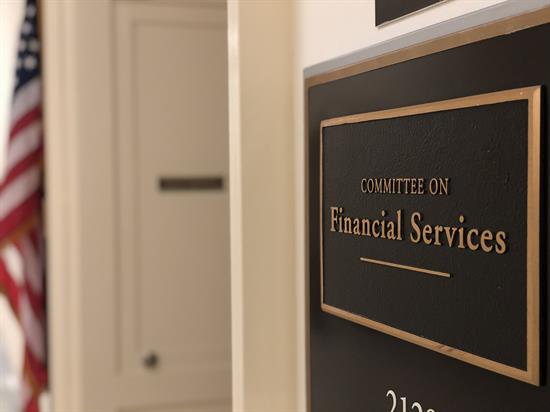Congressman Patrick McHenry, the Republican leader of the House Financial Services Committee, has asked Committee Chairwoman Maxine Waters to move forward on hearings in “critical areas that the committee should prioritize in the first months of the new Congress.”
The list of hearings requested by McHenry is fairly long. Included on the list is one on Fintech:
“A hearing on the regulation of Fintech, specifically to examine how the major U.S. financial regulators have started offices of innovation and pilot programs to encourage innovation in financial services and evaluating the strengths and weaknesses of that current framework.”
The Fintech ecosystem is fairly robust in the US. A combination of risk-taking entrepreneurs, a deep pool of venture funding, and a prominent financial services sector, has propelled the US to be one of the leading innovation centers in the world. Yet policymakers could do more to fuel financial innovation which seeks to challenge traditional financial industry incumbents while providing better services, for less, to more people.
One hot button topic is the toxic problem of regulatory overlap between state regulators and federal regulators. This duplicative oversight extolls a significant cost on society and thus consumers who end up footing the bill.
Other requested hearings by McHenry include a session on Britain’s “Brexit” withdrawal from the EU and its impact on the US.
Another important topic is China, the largest Fintech market in the world, and its encroaching competitiveness within the financial services sector as well as other issues such as cybersecurity.
The complete list of requested hearings is below.
- A hearing on Britain’s “Brexit” withdrawal from the European Union and its impacts on the U.S. economy and the international financial system to examine the effects of Brexit on unilateral and multilateral agreements and its potential systemic risk.
- A hearing on the Export-Import Bank and American global competitiveness to examine the role of the Bank and its impacts on the global competitiveness of U.S. companies and U.S. job creation.
- A hearing on cybersecurity in the financial sector to examine the readiness of our financial sector and the U.S. government to protect digital consumer accounts and personal information against fraud, misuse, and unauthorized access.
- A hearing on China’s debt trap to examine Chinese resistance to transparent disclosure in its lending and discuss the implications of China’s financing decisions in terms of the IMF, World Bank, and global systemic risk.
- A hearing on foreign investment and venture capital in today’s global economy to evaluate how Treasury is implementing the Foreign Investment Risk Review Modernization Act of 2018 (FIRRMA) and the impact it is having on startup capital formation for America’s small businesses.
- A hearing on scheduled reductions to the Federal Reserve’s balance sheet, specifically to examine potential strategies for unwinding crisis-era asset purchases in a way that does not create volatility to our financial markets.
Additionally, the Committee must provide oversight and ensure accountability for consumers to ensure everyone has fair and transparent access to the financial products they need. Hearings that would help further that objective include:
- A hearing on the National Flood Insurance Program (NFIP) to explore proposed reforms that could have a significant impact on the affordability, availability and long-term solvency of the NFIP.
- A hearing on the modernization of the Bank Secrecy Act and Anti-Money Laundering (BSA/AML) regulatory regime to investigate the duplicative nature of the current rules, highlight the need to modernize reporting system in the digital era, and strengthen our ability to target criminal activity.
- A hearing on the Terrorism Risk Insurance Act (TRIA) to provide oversight of the existing program and understand the evolving private insurance market and build consensus in advance of the program’s expiration.
- A hearing on the government-sponsored enterprises and the role of the federal government in mortgage finance to explore paths to ending the government conservatorship of Fannie Mae and Freddie Mac.
- A hearing on the regulation of fintech, specifically to examine how the major U.S. financial regulators have started offices of innovation and pilot programs to encourage innovation in financial services and evaluating the strengths and weaknesses of that current framework.
- A hearing on the continued oversight of the Financial Accounting Standards Board (FASB) and its Current Expected Credit Loss Accounting Standard to follow-up on the December 2018 Financial Institutions Subcommittee hearing on the matter and examine alternatives.


